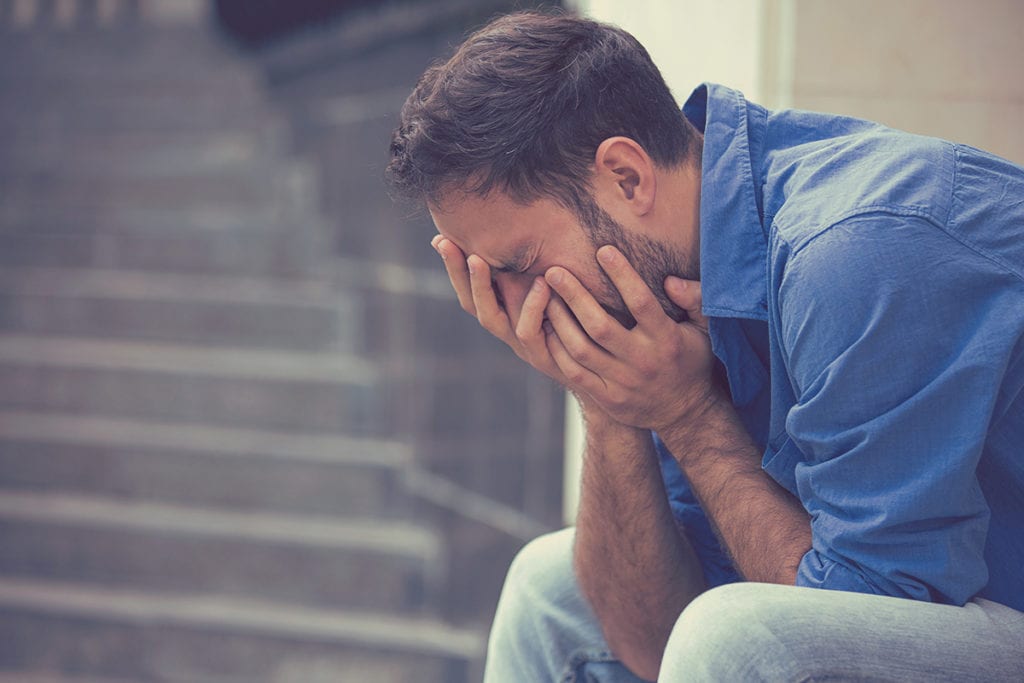Quitting drugs is often a painful problem due to withdrawal. And this reaction is one that goes through many different phases before finishing. Therefore, you must understand the stages of withdrawal to keep yourself safe. These steps usually occur with most people but will vary in many ways. Take them as a guideline to the basic process but understand that your experience may be different.
Stage One – The Early Onset of Withdrawal
The stages of withdrawal typically start at varying times for each person. For example, some individuals experience symptoms a few hours after their last dose. Others will only begin to notice issues a day after their last use. This reaction varies depending on many factors. For example, heroin and other opiates often trigger faster withdrawal occurrence than other substances.
Onset also varies depending on the size of your last dose and your general abuse habits. For instance, those who used higher levels of substances will typically have worse and quicker withdrawal onset. These symptoms often include general discomfort, growing anxiety, some stomach pain, and even agitation. And these only get worse over the next couple of stages and become harder to tolerate.
Stage Two – Symptoms Increase in Intensity
As the stages of withdrawal progress, your symptoms will worsen. By the time 24 hours have passed, you should start noticing more intense and painful symptoms. The initial discomfort you felt will increase in intensity during this stage. Expect to experience problems such as the following during this second stage of withdrawal:
- Increasing levels of irritability
- Sudden depression or anxiety symptoms
- A paranoia that you just can’t shake
- Insomnia that may keep you up for days
- Drug cravings that can be quite intense
- Sudden temperature changes
- The risk for severe dehydration
The discomfort caused by these symptoms will increase past the 24-hour mark and become worse as you detoxify. Many people may relapse at this point simply to relieve their pain. Those who don’t have some way to go before they are entirely out of the park. Sadly, your symptoms have yet to reach their worst intensity.
Stage Three – Symptoms Peak and Decline
During the next 48-72 hours, you’re going to experience a substantial peak in your withdrawal symptoms. Of all the stages of withdrawal, this is the worst. You’ll experience heavy cramps, nausea, vomiting, weakness, hallucinations, mania, agitation, and may even blackout. The intensity of this pain is often potentially deadly, as many may experience heart-related problems or even dehydration at this point.
That said, this period of detox does have an upside – the immediate decline of your symptoms. Eventually, you will come down the mountain of withdrawal pain and experience no more symptoms. At this point, your body is wholly detoxified from drugs. And you can now focus on your recovery with a stronger body and cleaner mind. However, you may experience one last stage that could try to force you into a relapse.
Stage Four – PAWS
Post-acute withdrawal syndrome or PAWS doesn’t always end the stages of withdrawal. Some people never experience this health problem. However, those who do may struggle to avoid relapse for months after detoxifying. When this syndrome develops, you will experience a broad array of symptoms that may compel you to use drugs again. Primary among these is a sudden and robust craving for your old drug that may be hard to ignore.
Other people experience the physical and emotional trauma that occurred during early withdrawal. For example, cramps may develop out of nowhere weeks after your withdrawal. Other people may feel intense depression and anxiety due to their psychological dependence on substances. Therefore, aftercare treatment is critical for this stage of recovery. It can help to manage your potential for relapse and give you the best chance at total and permanent sobriety.
We Can Help You Recover
At Promises Behavioral Health, we can help you through the stages of withdrawal. Our medical detox is designed to manage individual issues as they occur. And then we can walk you through psychological and physical help. Clients praise our outpatient drug rehab center and appreciate our focus on gender-specific care options. So please call 844.875.5609 today to verify your insurance and get started on your path to total sobriety.

